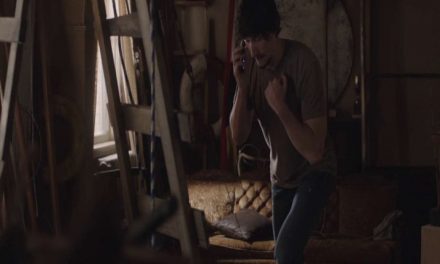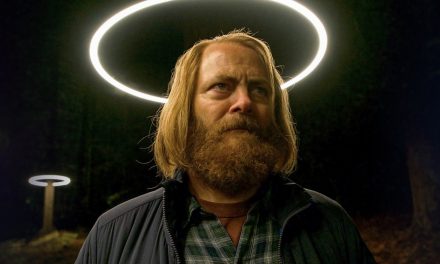
(Warning: Contains Spoilers. But ones you can avoid. Don’t click on any of the hyperlinks if you don’t want to know)
This month my nephew was among the many, many people who were enraged on 4th June when the free commuter newspaper Metro ran a full page spread about Sky Atlantic’s viewing figures which gave away what happened at the now infamous Game of Thrones Red Wedding. The furore was such that on Thursday 6th Metro ran a rather churlish two page defence of its actions, published online on the 5th, under a front cover banner which asked “Are you one of the GoT fans who accused Metro of giving away the ending of an episode that had already been broadcast?” (Their italics). Not only did they defend themselves by stating that the show had already aired, they also did so by reminding the outraged that the events depicted had originally taken place in George R.R. Martin’s book A Storm of Swords, published in 2000.
This defence has three basic problems. Firstly, it assumes that all fans of the show have access to Sky Atlantic. Second it assumes that all fans of the show watch it ‘live’ and third it assumes all fans of the show have read, or are aware of, events in the books. Of course, none of the above assumptions are correct. While showing something on Sky Atlantic is technically a public broadcast, a relatively small percentage of the UK population actually have it. The first episode of season 3 achieved an audience of 700,000 viewers while The Rains of Castlemere (including the Red Wedding) attracted 522,000, which is good for Sky Atlantic but nevertheless represents a less than 1% share of the market. It also assumes, in the age of PVRs, TiVo boxes and Catch-up that people watch their favourite shows while they are actually on the air. Doubtless many do, but that’s a very bold assumption. In terms of the books, I have only anecdotal evidence but I certainly haven’t read them, and while I know half a dozen Game of Thrones regulars who have, I know an equal number who haven’t.
More importantly, I would also say that I would not myself expect to open a newspaper the day after something I was watching was on to find a full page report, with pictures, outlining what happened, except perhaps for something like Strictly, The X Factor or, possibly, The Apprentice. If I chose not to watch an episode of those ‘live’ I’m fully aware that the next day I should avoid newspapers and the Yahoo news or run the risk of finding out what happened. Possibly I’d even extend this to Doctor Who, but for a show like Game of Thrones I would expect that should I decide to check the blogs and the twittersphere it would be my own fault if surprises are revealed, but it would never have occurred to me, until now, that it would be equally necessary to avoid picking up a free paper to while away a dull train journey. So I think that’s why what Metro did was so indefensible. It provided this information in a manner that was impossible to miss somewhere where you wouldn’t expect to find it.
 But it’s more complicated than that. Their comment that the book has been in print for 13 years raises another interesting point. Shortly before Metro was castigated for giving away Game of Thrones, the rather more sedate institution of Thought for the Day on BBC Radio Four’s Today programme came under similar fire. In May, to coincide with the release of Baz Luhrmann’s film, The Reverend Dr Giles Fraser used the story of Gatsby as a springboard to warn against worshipping false idols. In the case of Gatsby this was Daisy but in the modern world, it could be anything from pop stars to money to cars to whatever. The Rev Dr Fraser opened his monologue by revealing the mystery at the heart of Fitzgerald’s novel; who Gatsby is, and what he wants. Again, this proved controversial, with complaints that Thought for the Day had spoiled the film for those who haven’t read the book. It’s tempting to be rather less sympathetic in this case. The Great Gatsby was published in 1925, almost 90 years ago, is a recognized classic of American literature, is studied in schools and has been filmed 3 times (1926, 1949 and 1974) and adapted for TV in 2000. But, if you haven’t read it, were looking forward to the film and just happened to be catching up on current affairs over breakfast, I can see that the situation is identical to that of Metroand Game of Thrones.
But it’s more complicated than that. Their comment that the book has been in print for 13 years raises another interesting point. Shortly before Metro was castigated for giving away Game of Thrones, the rather more sedate institution of Thought for the Day on BBC Radio Four’s Today programme came under similar fire. In May, to coincide with the release of Baz Luhrmann’s film, The Reverend Dr Giles Fraser used the story of Gatsby as a springboard to warn against worshipping false idols. In the case of Gatsby this was Daisy but in the modern world, it could be anything from pop stars to money to cars to whatever. The Rev Dr Fraser opened his monologue by revealing the mystery at the heart of Fitzgerald’s novel; who Gatsby is, and what he wants. Again, this proved controversial, with complaints that Thought for the Day had spoiled the film for those who haven’t read the book. It’s tempting to be rather less sympathetic in this case. The Great Gatsby was published in 1925, almost 90 years ago, is a recognized classic of American literature, is studied in schools and has been filmed 3 times (1926, 1949 and 1974) and adapted for TV in 2000. But, if you haven’t read it, were looking forward to the film and just happened to be catching up on current affairs over breakfast, I can see that the situation is identical to that of Metroand Game of Thrones.
The question then becomes, when is it okay to spoil? What is the statute of limitations on spoilers? I think whichever way you look at it the next day is too soon and woefully unfair, but once something has aired, when is it okay to treat it without secrecy? Would it be acceptable for example for me here, now, to write the name of the killer in Broadchurch? You can read on safely because although it has been off the air for two months at the time of writing, I personally wouldn’t reveal it here. Only yesterday I was talking to a colleague at work – a TV writer no less – who said he had it recorded but hadn’t got around to it yet. I wonder though if I would be in a minority in deciding not to reveal it. Listening to Mark Kermode and Simon Mayo’s opening day review of Star Trek Into Darkness on their Radio 5 Live Friday afternoon review show, I was struck by the torturous pains they took not to reveal the spoiler(s) at the heart of the film. In fact they spent so much time talking about not revealing spoilers that it became pretty clear what those spoilers were likely to be. Two weeks ago, in an episode broadcast on June 7th (so one month after the release) Kermode, without fanfare, revealed what the spoiler was. I’ve seen the film but I was shocked by this. Yes, the film had been out for a month but it is still on. Is it fair to assume that everyone who is going now has either seen it already or doesn’t really care whether they know the reveal or not? The defence was that the information is now freely available online, and indeed printed on IMDB, but the point is that to reveal it in this way, on a live show, was just so unnecessary. It’s like a reverse form of censorship. The old adage goes that if you don’t want to see something, don’t watch it. Likewise, if you don’t want to know something about Star Trek Into Darkness, don’t look it up online. But listening to a live show in the car or on the treadmill, you can’t not hear something that is said without warning.

So contra Kermode I don’t think that revealing a key piece of information is okay, even if it is a month on. Yet what if I were to reveal here who the killer is in Twin Peaks? That’s over 20 years ago now so it should be fair game, perhaps like Gatsby, but it leads me to another point. Discussing TV Horror in a recent lecture to my first year students, I declined to show the moment when the killer is revealed (my best clip and still the most powerful 10 minutes of TV drama I’ve ever seen) when a straw poll in the room revealed that the show was so old not one of them had seen it. To my mind this effectively asks whether there’s ever a point when the spoiler embargo can be casually lifted. In the case of Gatsby for example, I’d propose that revealing Gatsby’s identity a week before the film came out was, ironically for Thought for the Day, rather thoughtless. Yes, the book’s been in circulation since the era of silent film, but still, each new adaptation brings a new flurry of interest, so in a period before and after the film comes out a spoiler embargo should be in place (unless of course you happen to be studying it). In the case of Game of Thrones, now that the season is done, there may be reasons to discuss it, but bearing in mind that the DVD of Season 3 probably won’t see the light of day here for months, I’d recommend that such discussions should be carefully controlled.
When the series 7 box set of Doctor Who was shipped out early in the US by mistake – before the season finale had aired in the US or UK – Steven Moffat and exec producer Edward Russell took to Twitter to implore fans not to leak the ending, even promising to release a special video featuring Matt Smith and David Tennant in conversation if the secret held. And by and large, it did. Yes, there were some leaks out there, but you had to go looking for them to find them and if you didn’t look, you could easily avoid them (and of course it’s not entirely clear what the ending actually meant anyway). So avoiding spoilers can be done. I suppose the point I’m making is that, in a sense, spoilers should be about consent. If you want to share information fair enough, but give people the chance to say they don’t want to hear it. It would have been no hardship for Thought for the Day to say at the beginning of the broadcast that if a listener didn’t want to know the secret behind The Great Gatsbythey should turn down the volume for three minutes, or for Metro to have printed on page one that if you haven’t seen last night’s Game of Thrones, avoid page three.
But should this extend to the classroom? I’m forever glad I bothered to check whether any of my students had seen Twin Peaks before showing the big moment. As an example of TV Horror they absolutely ought to see that sequence, but to take away the pleasure of watching it in situ, after 20-odd episodes of sublime build up would be unconscionable. It’s a spoiler-ful world out there and I try to avoid them at all costs. But do spoilers ever belong in the classroom?
Simon Brown is Director of Studies for Film and TV at Kingston University. His main research areas are early cinema, British cinema and contemporary American television, and he has published pieces on shows as diverse as Dexter, Alias, Supernatural and The X-Files.





